Meet the team
Simon Rabinowicz, Cofounder (MBBS Medicine 2020)
Uddhav Vaghela, Cofounder (MBBS Medicine 2020)
Get in touch
Website: vuidiagnostics.com/
Twitter: /DiagnosticsVui
Our project
At VUI we want to help doctors detect retinal diseases earlier. 1 billion people suffer from avoidable blindness worldwide, of which 80% could still have intact vision through early diagnosis. It is estimated that this has cost the global economy £4.8 trillion over the past 10 years.
Imaging the retina can diagnose over 50 eye and whole body diseases, including glaucoma and diabetes, but retinal screening tools are currently neglected or underused because they are complex, slow, inaccurate and expensive.
VUI offers a novel, plug-and-play device that aims to make retinal imaging simple, affordable and accurate.
The idea for VUI originated from our daily observations as medical students that current primary care imaging devices were not helping doctors to make an effective diagnosis of eye disease. We canvassed perspectives from a wider pool of GPs and expert eye doctors, and identified that there was a ‘fear’ around using existing screening tools because practitioners felt that misjudgments could compromise their patient’s eyesight or, conversely, trigger unnecessary referrals. This potential for error was confirmed through our discussions with patients, some of whom had experienced delayed referrals due to missed diagnoses which had jeopardised their eye health.
From this initial research it was clear there was a pressing need for a device that offers simple, affordable and accurate imaging – the three key tenets of VUI.
We are both technology enthusiasts and innovators at heart and we are always trying to find viable solutions to different problems in clinical practice. In the development of VUI, our combined expertise in software and biomedical engineering provided the perfect blend to create a solution to a global problem
The support of Hackspace and the wider Imperial Community
Imperial College Advanced Hackspace has been pivotal to the progress of VUI Diagnostics by providing us with the space and rapid prototyping resources to develop the concept for our product. Thanks to the support, both monetary and technical, from the Project Boost Grant and Hackspace Fellows/members respectively, we have been able to iteratively develop and overcome failure in the design process earlier.
We have three fantastic advisors with expertise in clinical medicine, medical devices, NHS procurement and manufacturing processes. Our manufacturing and commercialisation advisor, David Griffiths, was recommended to us by Hackspace and by a fellow start-up Mitt. Upon meeting David it was clear we needed to incorporate someone with his insight and experience. Our clinical advisors, Ms Rahila Zakir and Mr Riaz Asaria, were previously known to us through our course and previous projects with them. After showing them the prototype, they were keen to get involved.
Successes and learning
Probably our first major success was developing a minimal viable product (MVP) that fulfilled the criteria outlined by our research with doctors and patients i.e. a screening device that was simple, affordable and accurate. It was a great success to win the Venture Capital Catalyst competition run by the Enterprise Lab and also securing funding from other Imperial challenges. Lastly it has been fantastic to secure world-class clinical partners in the Royal Free and Western Eye Hospital to commence clinical trials of our device.
So far we haven’t had any major setbacks at this early stage, other than missing out on funding from a handful of external start-up competitions and this hasn’t got in the way of our development.
Our advice
Persevere. Be adaptable. Make the most of Imperial’s vibrant and connected community.
The future
Equipped with an MVP, we will soon be commencing clinical validations studies at the Royal Free and Western Eye Hospital which will involve stress testing our device and obtaining qualitative and quantitative data on safety , performance and efficacy. This wealth of information will contribute to our application for CE certification and future FDA approval.
In tandem, we will be developing a blueprint for our manufacturing processes with bespoke firms, expanding our IP protection globally and attempting to penetrate our beachhead market of London Primary Care Practices through their respective Clinical Commissioning Groups. We also intend to develop international partnerships, with healthcare providers and charities in Asia and Africa, where we believe our product can make a meaningful social impact.
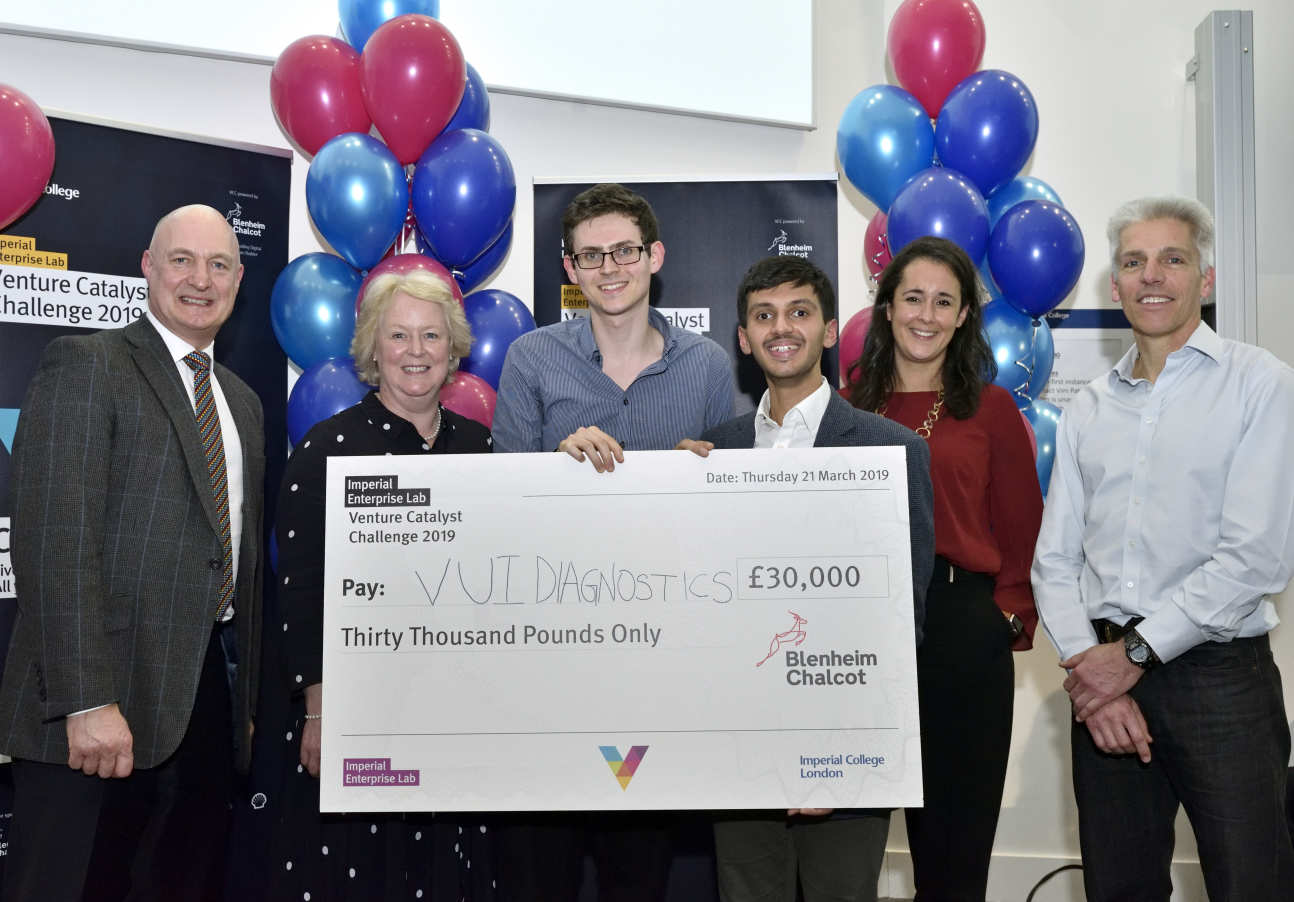
More from Hackspace
Discover what’s going on at the Hackspace.
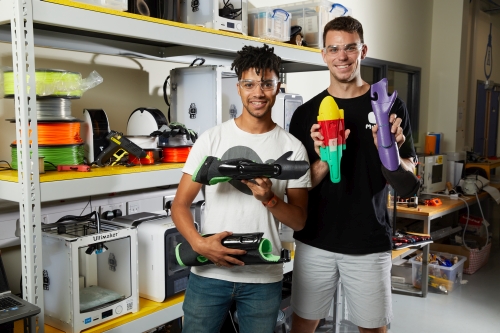
Read our success stories
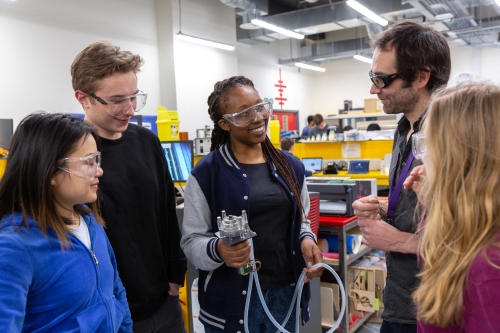
Work with us
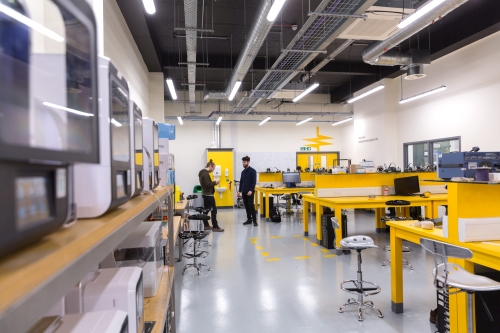
Our facilities
News
Catch up on the latest goings-on at Hackspace.
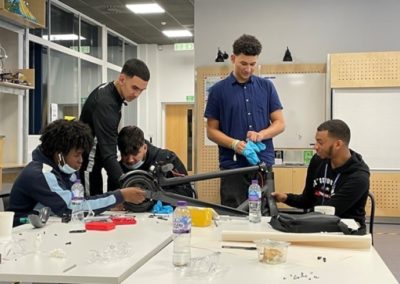
Imperial engineers work with local youth club to design and build e-scooters
Imperial has been working with North Paddington Youth Club to build electric scooters alongside the College's engineers.
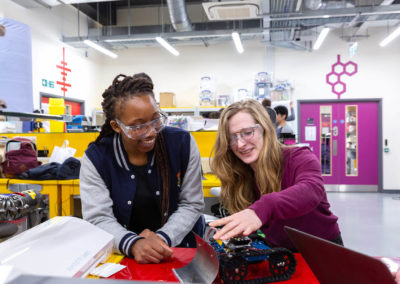
When Science and Art collide: White City Sculpture Challenge
The 2022 Sculpture Challenge will provide students the opportunity to collaborate and bring their vision to reality, resulting in the winning sculpture having a permanent presence at the White City Campus.
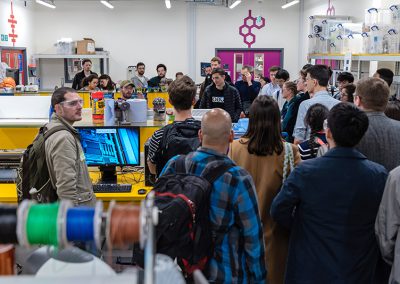
Hackstarter programme launches to support Imperial’s student makers and creators
Imperial College Advanced Hackspace launches Hackstarter to provide £500 prototype development grants.
© Copyright Advanced Hackspace | Powered by Imperial College London | Privacy Policy I Accessibility Statement | Website by Herd
